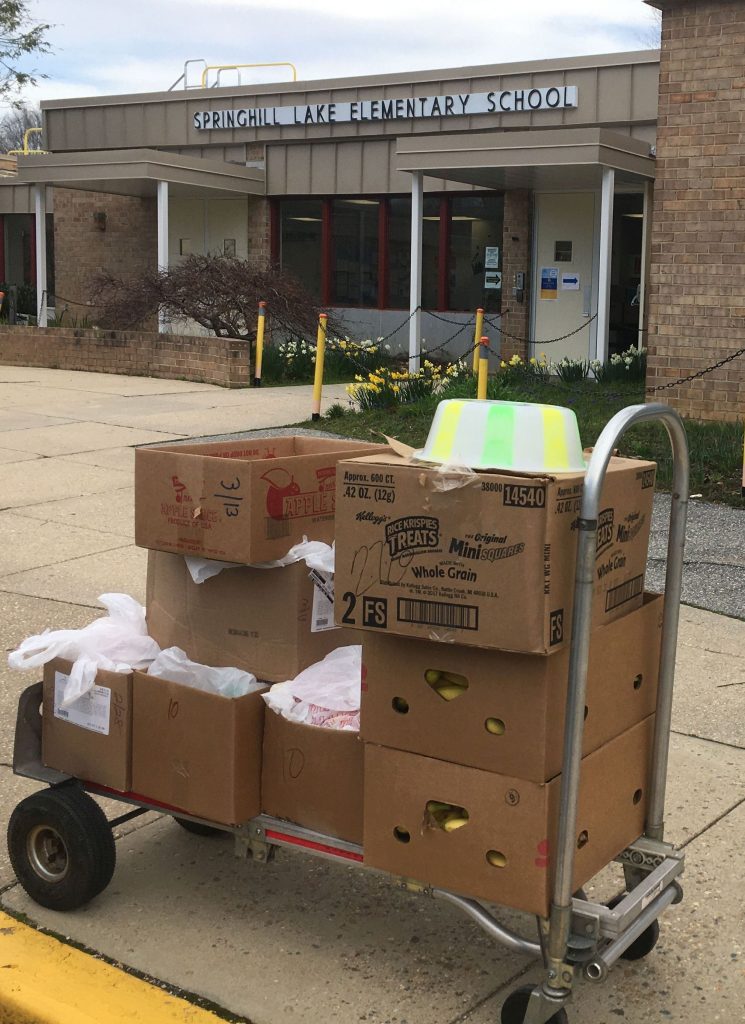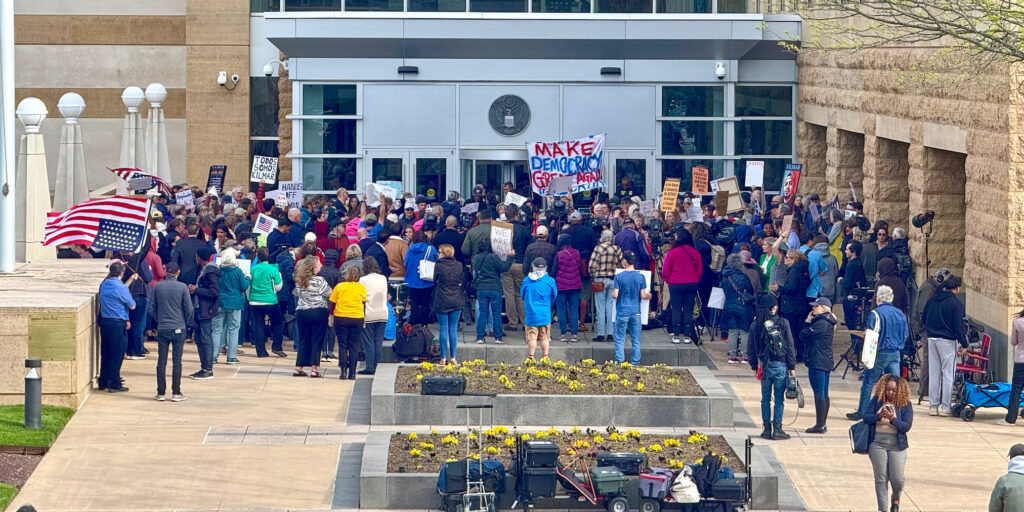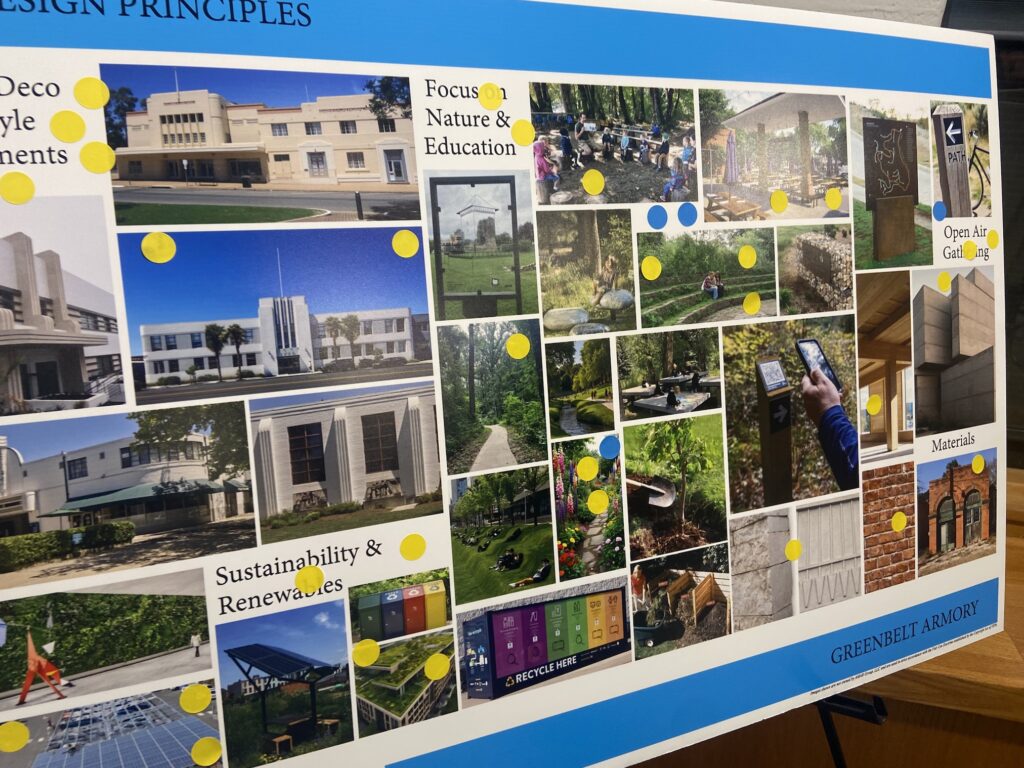The sun is shining and birds are chirping. It’s a beautiful spring day. Missing is the sound of children’s laughter punctuating the stillness. The COVID-19 cloud has touched every aspect of Greenbelt life.
Signs of the time are everywhere. Barricaded playgrounds. Lunches being distributed to ease the strain on family budgets. Small businesses have been shut down. The movie theaters have gone dark. The Giant grocery store has senior hours. Those over 60 and those with underlying health issues can shop in a relatively customer-free zone with the hope that the most democratizing staple – toilet paper – will be on the shelf.
At Springhill Lake Elementary School, a table buttresses the door as a voice calls out “Grab a lunch,” “Grab your snack,” “Don’t forget to come back Monday.” The voice declines to be interviewed for this article citing Prince George’s County Public Schools protocol but the friendliness in her voice lets children know that she is there for them. After the initial rollout of free breakfast, lunch and a snack for school children around the county, Springhill Lake Elementary was added as a distribution center.
Gangully Abashe, father of five, brought three of his children to the school. “We are spending much time together. We don’t have fear, but we do have respect for the facts.” Fourteen-year-old son Reuben Abashe, a 10th grader at Eleanor Roosevelt, was less philosophical. “I miss my friends. I miss sports. I miss computer, even tutoring.” Debbie Abashe, a student at Springhill Lake Elementary, chimed in from the backseat that it was terrible news not seeing her friends and they have created a group chat.
Frontline workers include fast food workers too. Franklin Park resident Michelle had the promise of a new job which included job training and career potential. She gave notice at her retail position and then coronavirus interrupted that promise. The retail store was non-essential and closed. Former job experience in fast food came to the rescue and she got a job at a fast food chicken restaurant. “Surprisingly, it’s pretty much business as usual, no real slowdown. We already wear gloves and head coverings, but in that environment, we can’t avoid close contact with our fellow workers. We just hope they don’t come in sick.”
“What you need to write about, is how Metro is making it harder for wage workers to get to work,” she challenged. Metrobus 89 takes her directly to her job. One morning, waiting with a knot of other commuters, she checked for the next expected arrival time. Metro had suspended service. No notice. No sign posted. Nothing. This forced Michelle to Uber to work. “My transportation costs have gone from $4 per day to $20 per day. I have to work two hours before I break even.”
Often populated by younger workers, for some of whom fast food employment is not a lifeline, managers overbook staffing. Michelle explains that, “If everyone shows up, the labor costs become too high and workers are forced to take an unpaid 60-minute break instead of an [unpaid] 30-minute break.” She points out, “That’s more money out of my pocket. I understand it from a management point of view, but from a worker’s point of view…” and her voice trails off.
“Tough times make tough people” the wall hangings remind us.





